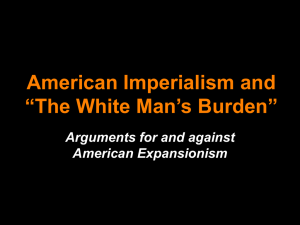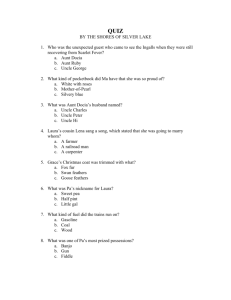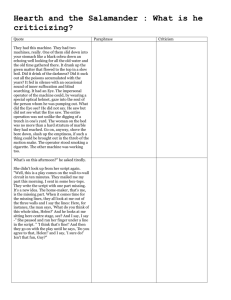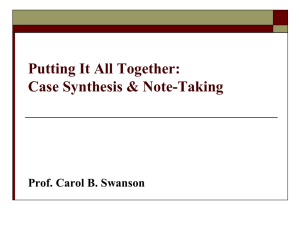Jim Whitney
advertisement
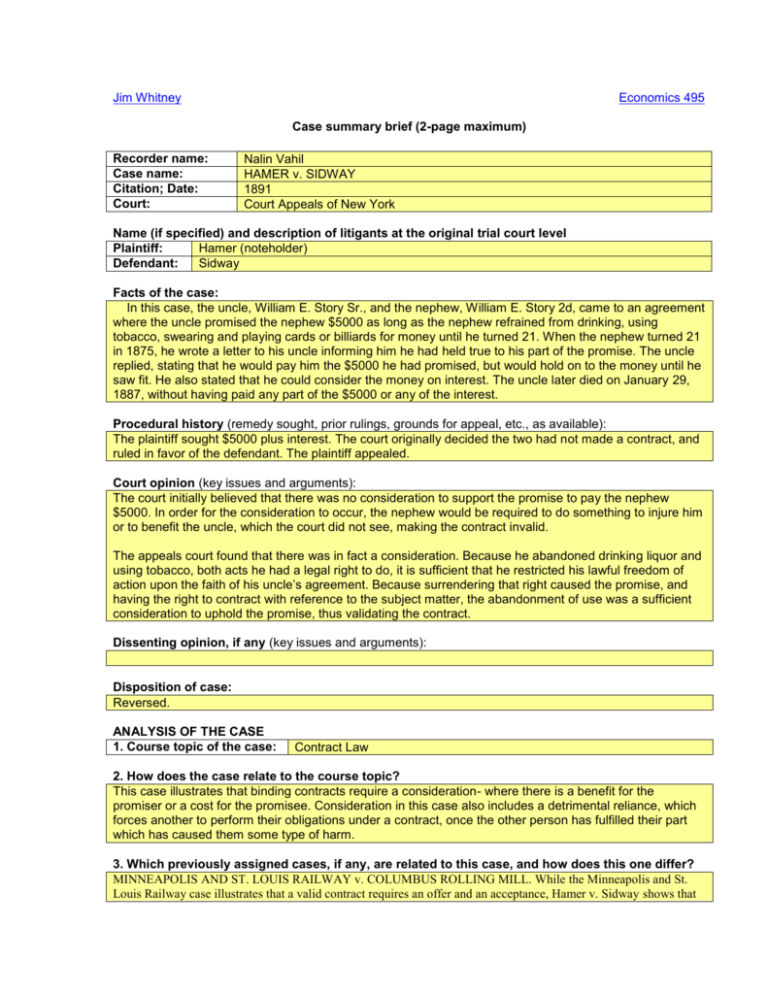
Jim Whitney Economics 495 Case summary brief (2-page maximum) Recorder name: Case name: Citation; Date: Court: Nalin Vahil HAMER v. SIDWAY 1891 Court Appeals of New York Name (if specified) and description of litigants at the original trial court level Plaintiff: Hamer (noteholder) Defendant: Sidway Facts of the case: In this case, the uncle, William E. Story Sr., and the nephew, William E. Story 2d, came to an agreement where the uncle promised the nephew $5000 as long as the nephew refrained from drinking, using tobacco, swearing and playing cards or billiards for money until he turned 21. When the nephew turned 21 in 1875, he wrote a letter to his uncle informing him he had held true to his part of the promise. The uncle replied, stating that he would pay him the $5000 he had promised, but would hold on to the money until he saw fit. He also stated that he could consider the money on interest. The uncle later died on January 29, 1887, without having paid any part of the $5000 or any of the interest. Procedural history (remedy sought, prior rulings, grounds for appeal, etc., as available): The plaintiff sought $5000 plus interest. The court originally decided the two had not made a contract, and ruled in favor of the defendant. The plaintiff appealed. Court opinion (key issues and arguments): The court initially believed that there was no consideration to support the promise to pay the nephew $5000. In order for the consideration to occur, the nephew would be required to do something to injure him or to benefit the uncle, which the court did not see, making the contract invalid. The appeals court found that there was in fact a consideration. Because he abandoned drinking liquor and using tobacco, both acts he had a legal right to do, it is sufficient that he restricted his lawful freedom of action upon the faith of his uncle’s agreement. Because surrendering that right caused the promise, and having the right to contract with reference to the subject matter, the abandonment of use was a sufficient consideration to uphold the promise, thus validating the contract. Dissenting opinion, if any (key issues and arguments): Disposition of case: Reversed. ANALYSIS OF THE CASE 1. Course topic of the case: Contract Law 2. How does the case relate to the course topic? This case illustrates that binding contracts require a consideration- where there is a benefit for the promiser or a cost for the promisee. Consideration in this case also includes a detrimental reliance, which forces another to perform their obligations under a contract, once the other person has fulfilled their part which has caused them some type of harm. 3. Which previously assigned cases, if any, are related to this case, and how does this one differ? MINNEAPOLIS AND ST. LOUIS RAILWAY v. COLUMBUS ROLLING MILL. While the Minneapolis and St. Louis Railway case illustrates that a valid contract requires an offer and an acceptance, Hamer v. Sidway shows that there is a third requirement for a contract to be valid: a consideration. 4. How does the case affect economic incentives and efficiency? This case promotes efficiency by attempting to limit litigation by excluding trivial promises, which decreases legal costs. This case also incentivizes fair trade and exchange, where both sides must make a sacrifice in order to get some benefit in return.
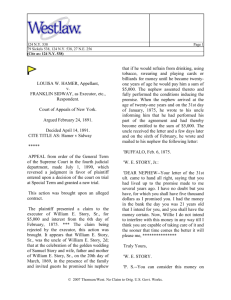
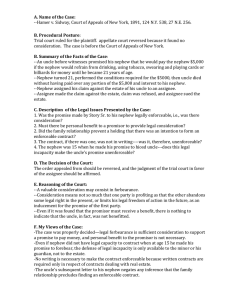
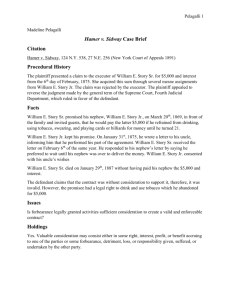
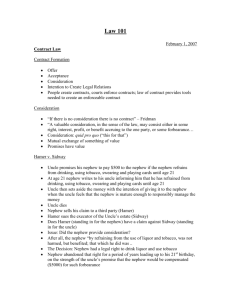
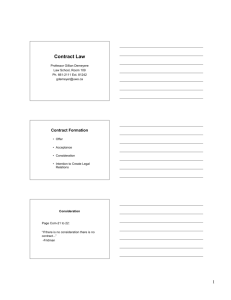
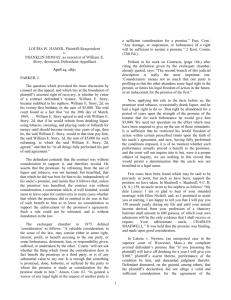
![[*538]](http://s3.studylib.net/store/data/009025140_1-275a2d6f042b34581fb4051708c3c6cd-300x300.png)

